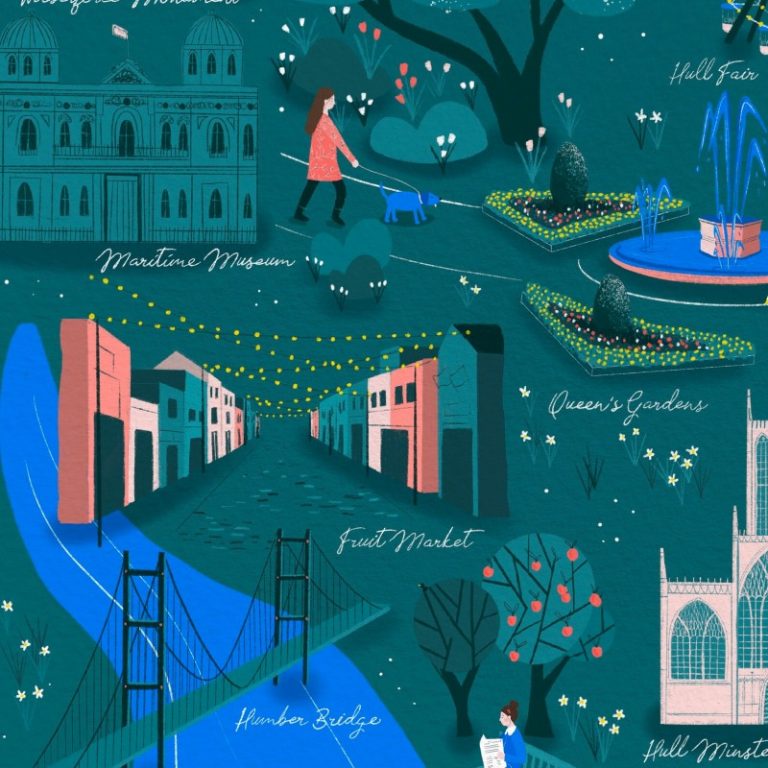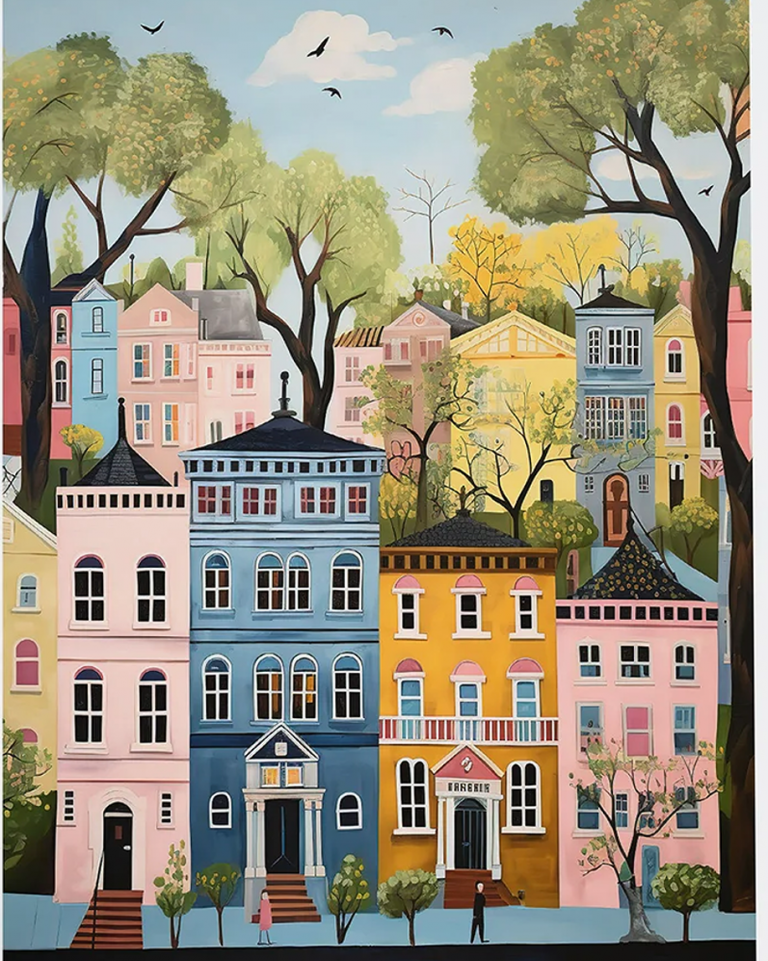
You can’t switch on the news without seeing stories about safety concerns or rising crime rates. People want to feel secure at home, at work, and anywhere they spend time. It’s clear that the need for safer communities isn’t just a talking point—it’s something that affects real lives every day.
The good news is that simple actions can have a lasting impact. Even small changes, like neighbours looking out for each other or speaking up when something feels wrong, make a real difference. In this post, you’ll find proven, practical steps that actually work to build safer spaces for everyone, no matter where you live.
Prevent Crime in Neighbourhoods
Thinking ahead is the key to safer streets and calm communities. People working together, careful planning, and small improvements can turn trouble spots into places families want to call home.
Crime isn’t only about bad choices—it’s often about chances. Many burglars and vandals look for easy targets. By making small changes, neighbourhoods become harder places for crime to take root.
Ask your local police force to send a Designing Out Crime Officer to talk to your office, council or school. They are specially trained to know things to do and avoid:
- Better lighting: Well-lit walkways and entrances mean fewer dark corners. Ensure these lights are orange-hued and solar-powered (so go off when not in use) to prevent light pollution (to help birds and wildlife). Also turn off lights when not in use (and use blinds and task-lights) on glass buildings, to prevent birds flying into windows.
- Clear sightlines: Trimming bushes and trees gives a clear view from the street to homes and shops. This takes away hiding places, and makes it easier for people to notice something off.
- Safe walkways: Smooth, straight paths that connect busy areas let people walk safely day or night. Paths with open views make trouble less likely.
- Some councils (in Swale, Leamington and Ipswich) have installed emergency call points, which let women report areas they feel unsafe (poorly-lit streets, abandoned buildings, vandalism, verbal abuse). Calls can be anonymous (people with hearing or speech impediments can pre-register, to call by text).
- Report report non-emergency crimes to the police, if not warranting a call to 999 (again, this can be anonymous via CrimeStoppers).
- Secured spaces: Fences, gates, and locked bins mean fewer easy gets for people up to no good.
Neighbourhood Watch & Special Constables
Community spirit is one of the strongest defences against crime. When everyone knows their neighbours, strangers stick out and trouble has fewer places to hide.
- Neighbourhood Watch schemes: Groups of everyday people agree to look out for each other’s homes and streets. They share tips and report odd behaviour. Signs in windows make burglars think twice. The site has heaps of crime prevention advice that you could go through together at regular meetings.
- Special Constables: Volunteer officers have police powers, but come from the community. They patrol shops, parks, and schools, and can step in, before situations escalate. Look up your local police force, to find opportunities.
Helping Police Build Trust Locally
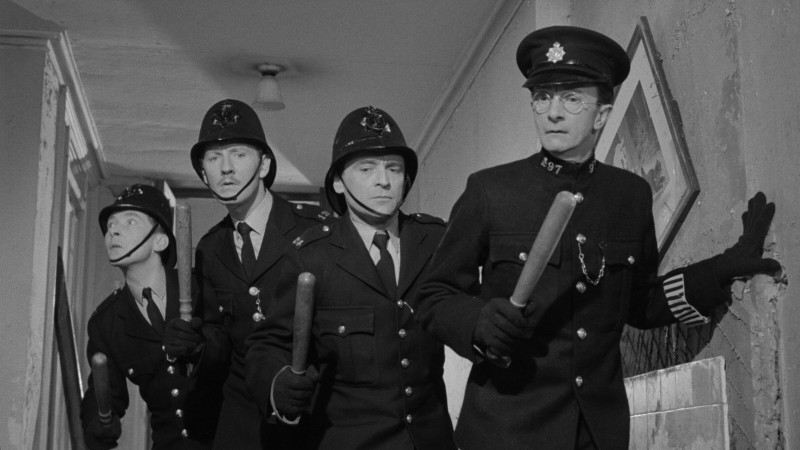
A police badge doesn’t create safety on its own—trust does. Friendly, familiar officers build bridges that help everyone.
The film Carry on Constable is one of the better in the popular franchise (marking the first appearance of Sid James). It also starred Joan Hickson as the local drunk – of course years later, she would play Miss Marple!
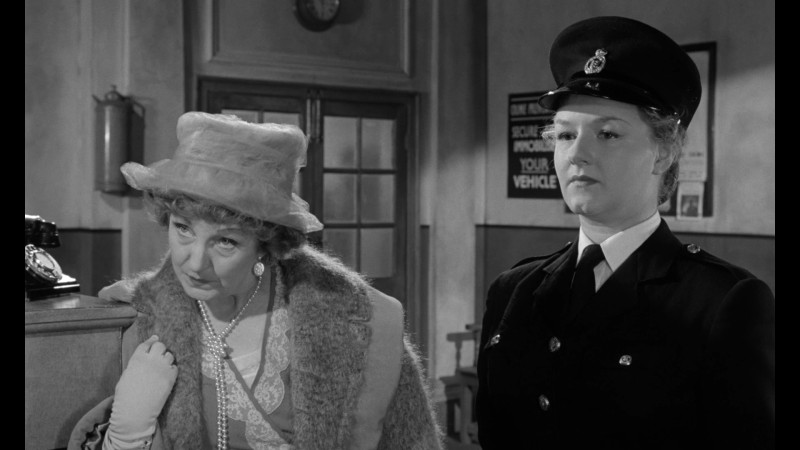
How police connect better with locals:
- Community meetings: Police who show up at local events, listen to worries, and answer questions feel more like neighbours than outsiders.
- Youth outreach: Officers visit youth clubs and schools, making it easier for young people to talk about problems before things go wrong.
- Street patrols on foot or bike: People remember a friendly face. Walking or cycling officers are approachable, quick to respond, and part of the community, not just patrolling through it.
Our police forces have been seriously underfunded for years, which has led to all kinds of problems. Compared to some countries (say Afghanistan or Somalia), England is a very safe country.
Trust in the police force has sadly diminished, especially since the shocking case of Sarah Everard (who as kidnapped and murdered by a policeman, the very person she thought she could trust). Of course most policemen are trustworthy, but we don’t have a force like Monaco (which has one police officer for every 2 people).
You can obviously call 999 to call the Police in an emergency. Report crimes anonymously on CrimeStoppers (same for wildlife crime).
A good way to help the police is not to waste their time if you don’t need to. Some people have called asking stupid questions like not knowing a crossword answer, request for local business numbers and one operator even got a call, as one person was refusing to share food at the cinema!
The police website has a list of other things you can call for help, or report online:
- Road accidents (including deer/vehicle collisions)
- Anti-social behaviour
- Domestic abuse
- Spiking drinks
- Hate crimes
- Stalking
- Missing people
- Suspected terrorism
- Fraud and cyber-scams
- Updates on previous crime reports
If you’ve been a victim of crime, access free victim support. Call or text the support line, start a live chat or fill in a form and someone will get back to you within three working days. Services are confidential.
Simple Tips to Help Prevent Burglaries
- Place ladders etc away out of sight, and ensure anything that could be stepped on to higher rooms (bins or rubble) are cleared away.
- Purchase quality locks for doors, gates and bikes. Most thieves will give up, without ‘easy pickings’.
- Don’t leave items in view from windows (or consider living simpler, by selling/donating expensive ornaments and other items you don’t need). Nobody has the right to take belongings. But if you don’t live in a house with expensive jewellery, people are less likely to target your property.
- Security-mark items of value. Use a (good) burglar alarm from a reputable company like Verisure, ensure it doesn’t go off in the night as a false alarm.
- Don’t tell people on social media that you are going away. You can buy programmes to temporarily switch on lights etc, to give the impression that someone is home.
How to Create Safer Streets for Women

Despite the west being relatively safe, almost 50% of young women reported street harassment in the past year, and in France a quarter of all women fear walking alone in public spaces, with many having been verbally harassed on the street.
Women feel much safer if everyone else is walking, along well-lit pavements (that also accommodate prams and pushchairs, and ‘prowlers’ are less likely to lurk, as they would be seen).
Quick easy access to public transport is key (no waiting in the dark for an hour for the next bus). Ensuring everything works (like installing modern easy-to-read bus timetables and solar bus stops (that light up when someone is waiting for a bus or reading a timetable,.

The Economist recently ranked Vienna as the most women-safe city on earth, thanks to safe green spaces (all well-lit and linked to good public transport). There are seats for girls from ethnic minorities (often expected to care for younger siblings) to watch them in playgrounds, while being able to read/chat themselves.
Pavements are wider for prams, pushchairs and wheelchairs. Download free reports: designing safe cities for women and travelling in a women’s shoes.
She City is a book to show how to make cities safe for women. Town planners have responsibility to redesign cities, towns and villages that deter unwanted attacks and lead people to feel safer walking, especially at night. A book for forward-thinking architects or a birthday book for your town council!
Focusing on walkable communities (also good for supporting indie shops) that avoid having to drive out-of-town to shop (females are still paid less generally in jobs, so less likely to able to afford a car).
Tips to Prevent Stalking and Rape
Knowing what to look for and who to call can make a real difference. Sometimes the first step is simply spotting the warning signs. Warning signs of stalking include people showing up uninvited, repeated calls, text messages or gifts, someone trying to track your movements, or contact your family and friends, and being watched or monitored (even online).
If you feel at risk, share your worries with someone you trust. Rape Crisis or Victim Support, give practical advice. Police also have dedicated officers for these crimes.
If safe to do so, tell the person to stop contact, and keep a record of messages and incidents. Smartphones can share your location or send emergency alerts.
Empowered by Ashley: A Personal Alarm

Empowered by Ashley is England’s most popular personal alarm. One pull of the pin from this reusable silicone device, and attackers are struck by a noise as loud as a jet engine, and a bright flashing LED strobe. Obviously this is not ‘natural’, but can save your life, if you are being attacked.
It’s Time to Learn Some Self-Defence!

Streetwise Defence offers in-person and online self-defence classes for people of all ages and sexes. Ask your workplace, school or community group to organise a workshop for you – or check out the individual online courses.
These are great classes to learn. You don’t turn into Wonder Woman, but you do learn how to protect yourself with confidence.
Of course, the first message is to avoid risky situations in the first place. But you’ll quickly learn how to get out of a stranglehold, or how to escape a grab, so you can make a quick getaway. You can even take a free mini-course to get you started.
These classes were created by a former kick-boxer, who had to leave his career at the Royal Marines, when a drunk driving accident left him injured. After working as a celebrity bodyguard, he decided to put his immense self-defence knowledge into courses to help the general public.
He combined his skills with the experience of co-founder Julie Waite, to create trauma-informed, CPD accredited training to empower people.
Did you know that Wonder Woman actress Lynda Carter, was down to her last $25 when she landed the role? Before being an actor, she was a singer, who soon returned to her first love.
Clever Apps to Keep Women Safe
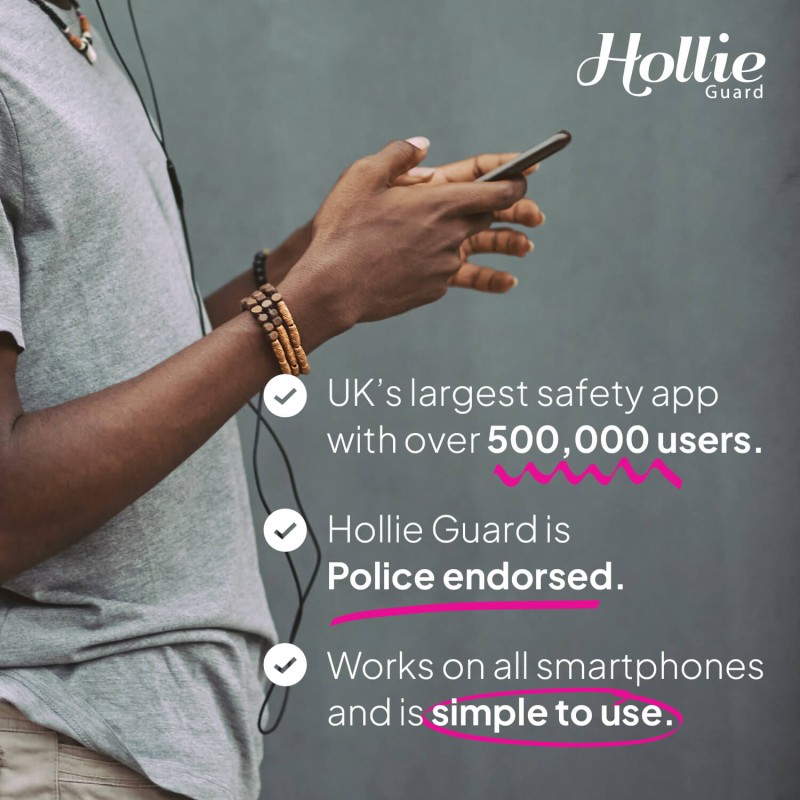
There are now many good apps that allow users to alert others if they feel unsafe, whether producing incoming calls to sending details to where you are to others. Some good ones are:
- HollieGuard shares your location every 5 seconds, and features a personal alarm and evidence catcher. With HollieGuard Extra, if you deactivate that you’re safe, this triggers a response from emergency services.
- WalkSafe can track journeys, share locations and find you ‘safe spaces’.
- bSafe enables emergency response teams to act within seconds. It uses voice command (even if your phone is inaccessible, with live GPS tracking and auto-response communication.
- EPowar offers instant emergency alerts, automatic attack detection, and reliable storing of evidence on the Cloud. You can also store live location with selected friends.
- Safetipin clicks photos every 30 minutes at night, and can send info to report how safe women feel on streets, public transport or at public toilets. Again you can send a tracking request if you feel unsafe, check out nearby safe places to wait for help, and find the safest route out of an area.
How Scotland Reduced Knife Crime

A few years ago, Scotland had soaring knife crime, but numbers have dropped dramatically (in 2017 England and Wales had a combined 35 knife stabbings, whereas Scotland had none). So how did they do this?
By doing the same as Norway. Instead of ‘locking people up’, Scotland helps those found with knives, to find homes, jobs and training, to do something positive with their lives. Instead of in England (with 50,000 knife crimes in 2024, an increase of almost 80% in 10 years). Building trust between the public and police, community outreach and education, is combined with regular knife amnesties.
- Billy’s Wish is a charity founded in the name of a knife crime victim. It offers free resources for schools.
- Fearless is a site to give information (anonymously) about a crime or fight that has taken place, or is planned. The site has a quick close tab and there is no browsing history, personal details or IP address taken.
- Steel Warriors is a London charity that melts down knives taken off the streets, then uses the steel to make ‘street outdoor gyms’ for young people.
How to Prevent School Shootings
Thankfully these are still rare in England, but they do happen increasingly abroad. Most are due to former students bearing grudges, often from bullying:
- BARK app: This tool scans messages and posts for talk about weapons, bullying, self-harm, and threats. It alerts parents and schools in real time so adults can step in fast, without being too intrusive for moody teens! In the USA, it is has prevented at least two school shootings.
- Clear anti-bullying policies: Schools that have tough, clear rules see less bullying. Strong leadership and training for staff help them spot trouble and respond quickly.
- Safe reporting systems: Some schools use anonymous online boxes or apps so students can flag bullying without fearing revenge.
- Involving parents: Schools that update parents about safety steps and changes build trust and a sense of shared purpose.
- Create safe routes to schools, this helps to prevent children being bullied en-route.
Around 90% of all school shooters warn on social media before. So most can be prevented. Register your school with Sandy Hook Promise, to take online courses to prevent school shootings.
Nearly all serial killers have a history of cruelty to animals. AniCare Manual is used for probation officers, to help children who have committed or witnessed animal abuse. To prevent the cycle continuing.
The daughter of Gwen Mayor (the teacher at Dunblane who died with defensive wounds, holding a dead child in her arms) does not allow her own children to play with toy guns or violent video games. Instead, she teaches them about hedgehogs, her mother’s favourite animal.
And all Dunblane residents adore local boy Andy Murray, who with his brother was at school, at the time of the shootings. Due to his tennis success, they appreciate that their town has now been put on the map for a different reason, and remembered for some happy events.
Why Prison Reform is Not ‘soft on crime’

Rehabilitation focuses on education, mental health treatment, and skills training to help inmates reintegrate into society. Punishment alone often ignores the root causes of crime, which can lead to reoffending. Tap Social Beer trains prisoners up at its Oxford brewery, to reduce reoffending rates.
Restorative justice involves both the victim and criminal (not always from the same crime) meeting up to discuss how the crime impacts the victims.
It’s not popular with right-wing MPs who wish to send everyone to prison, but it has huge success in preventing crime (especially for juvenile criminals who learn the impact of their crimes). Surely that’s what we want – to reduce crime? Here’s a case study from the website:
A man was pushing his 99-year old wheelchair-bound mum, when a boy snatched her handbag and ran off, leaving his mother screaming for help.
He managed to find the boy who gave back the bag, and shortly after he pleaded guilty in court. The man requested to meet the boy, who he later found out was just 14 and had been coerced into the crime by someone else.
After their meeting, he shook the boy’s hand (who later wrote an apology letter to his mother, who was happy that she had ‘been heard’). So it’s likely he will never reoffend again, which makes it safer for everyone else.
The Prison Reform Trust says prison reform is not being ‘soft on criminals’. It means using people’s time inside to do something useful (so they are safer people when released). It also makes prisons safer for prison officers.
Countries embracing reform have reported a decline in crime rates, as offenders are less likely to reoffend after receiving proper rehabilitation. This shift reduces the potential for repeat wrongdoing, promoting a safer society for all. Norway’s prison reform policy has now produced recidivism rates below 20%, far lower than the UK.
Creative Ideas to Reduce Re-Offending

Tap Social Beer (Oxford) is a social enterprise that makes beer to create jobs, for people leaving prison. So far it has 75,000 hours of paid employment for prisoners on day release (or prison leavers). Without help, most prisoners get around £76 for their journey home (often a tent), and 50% of prisoners reoffend within a year, costing taxpayers around £6 billion each year.
50% of all employers won’t hire someone with a criminal record, and this means up to 70% of prisoners who leave with their £90 journey fare re-offend, and return to cells for up to 22 hours per day (costing the taxpayer around £42K per prisoner each year).
The range of beers include:
- Jobsworth (Session Pale Ale)
- Sundown (Pale Ale)
- Inside Out (oatmeal stout)
- Time Better Spent (Juicy IPA)
- False Economy (craft lager)
- Home and Dry (Hazy Pale Ale)
- Major Figures (lager)
You can enjoy fresh draught beer (and cans) at the company’s four community spaces in Oxfordshire. Or outside of this area, have the beers delivered to your home or business direct, with free local delivery on orders over £25 and free nationwide delivery for orders over £60.
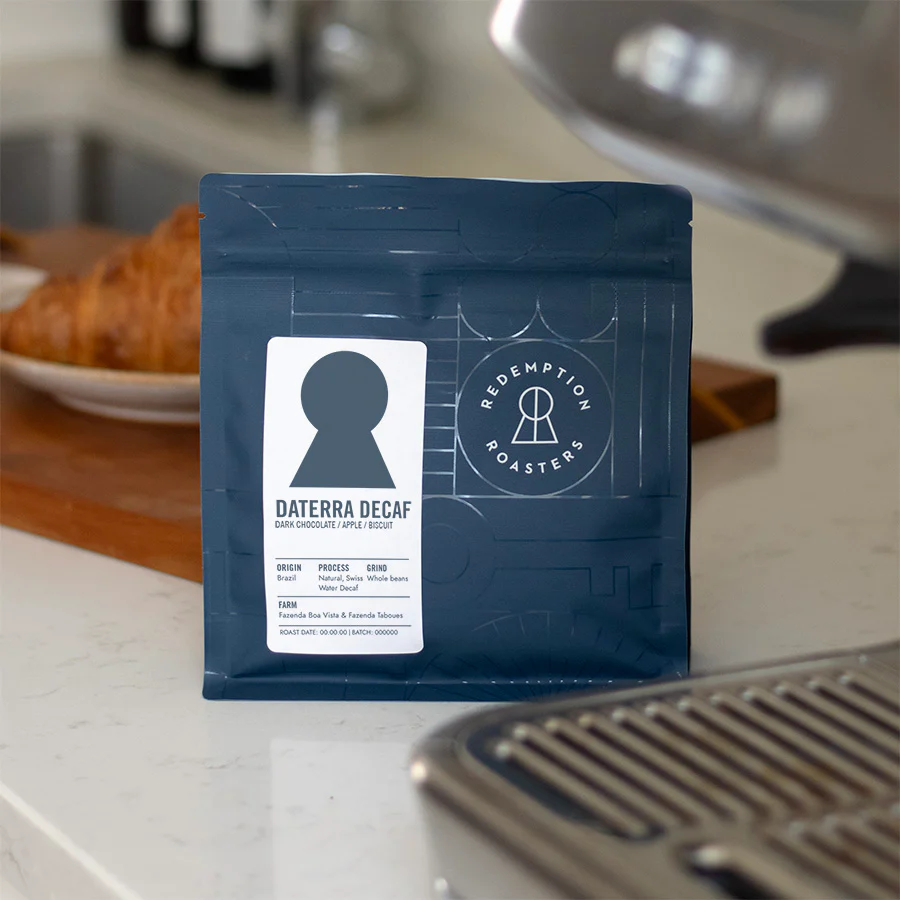
Redemption Roasters offers coffees hand-roasted by prisoners in Hertfordshire at HMP Mount (which used to have a lot of drug problems). This gives jobs and training, to help inmates find jobs on release. A portion of wages are set aside, to access on release.
NHS says to have 1 or less cups of coffee a day if pregnant (chain stores serve coffee higher in caffeine). Use a sink protector mat to stop coffee grounds clogging drains. Latest research says that caffeine could harm harm compost bin creatures, so just bin coffee grounds (and tea leaves) to naturally break down.

The Glasshouse is based in a women’s prison in Kent, which trains people in horticulture, to sell houseplants sold at their shop and website, plus offer gifts for offices and retail. Of course, the added benefit is of being close to nature.
Many plants (including ferns, sago palm, Swiss cheese and all bulbs) are toxic to pets (even brushing a tail past can harm). Also avoid facing indoor plants to face gardens, to stop birds flying into windows.
Does the Death Penalty Deter Crime?
No. In US states where it is used (Texas), the murder rate is higher than states that don’t use it (like the northeast). This is because most crimes are committed by people on drugs, or who are insane. So they are not thinking of the consequences, when committing the crime.
We used to have the death penalty in England, which (judging by celebrity-obsessions of recent years) would likely mean hoards of people would attend public hangings if they could.
In fact, the last ‘public hangman’ (Albert Pierrepoint) later said that he didn’t think his job made any difference to deter crime. The son of a hangman, he even sometimes hanged the wrong person (in one miscarriage of justice, he hanged an innocent man with a mental age of 10). Then when the guilty man was found, he hung him too).
He also before that, had controversially hanged a 19-year old man now believed to have been innocent. He also hanged Ruth Ellis, the last woman to be executed in England. Then retired to set up a bed-and-breakfast? But he later said:
All the men and women whom I have faced at that final moment convince me that in what I have done, I have not prevented a single murder.
The book Death at Midnight is interesting. It’s written by a former executioner in the US. His argument was that those who support the death penalty are not the people pulling the noose. So while they go about their daily life after the execution, it’s people like him who are left having nightmares for the rest of their lives.
What is far more effective is to prevent drug addiction in young people. Sport, art, and volunteering give young people a place to belong. Busy, connected children have less reason to try drugs out of boredom or loneliness.
Adults who lead by example as youth mentors make a real impact. Teachers, coaches, and neighbours who talk openly about choices show kids what a healthy life looks like.
Agatha Christie – England’s Crime Writer

Dame Agatha Christie was England’s most successful crime writer, with over 2 billion copies of her books sold worldwide. Her stories were intelligent puzzles, without gratuitous violence, set in nostalgic villages.
Agatha Mary Clarissa Miller was born in 1890 in Torquay, Devon. Raised in a wealthy family, her American father loved to read to her, and her mother encouraged her imagination.
Agatha’s father’s early death put a stop on many of the family finances. Her sister married well, although her brother was more rebellious, a professional hunter who was often getting into trouble. Agatha meanwhile was more fun, becoming the first women in England, to surf standing up!
She had a controversial life, going missing once for 11 days, during an episode of intense stress before her marriage breakdown. It’s now believed she was genuinely suffering from memory loss, and it was not a publicity stunt, as often claimed.
Hercule Poirot and Miss Marple
Agatha Christie’s most legendary sleuths were Belgium Hercule Poirot (a retired detective) and Miss Marple, a village spinster, who saw patterns in people, that others missed). Both were turned into much-loved TV shows. Her book popularity puts her only second to William Shakespeare, with her books having been translated into 100 languages.
Agatha’s home Greenway in Devon is one of the most popular National Trust destinations. Described by the author as ‘the loveliest place in the world’, she and her second husband (archaeologist Max Mallowan) lived here, in the house that had originally been built for a sea merchant. The walled gardens are home to a restored peach house and vinery, plus there is a local allotment cared for by local children.
Joan Hickson: The Undisputed Miss Marple!
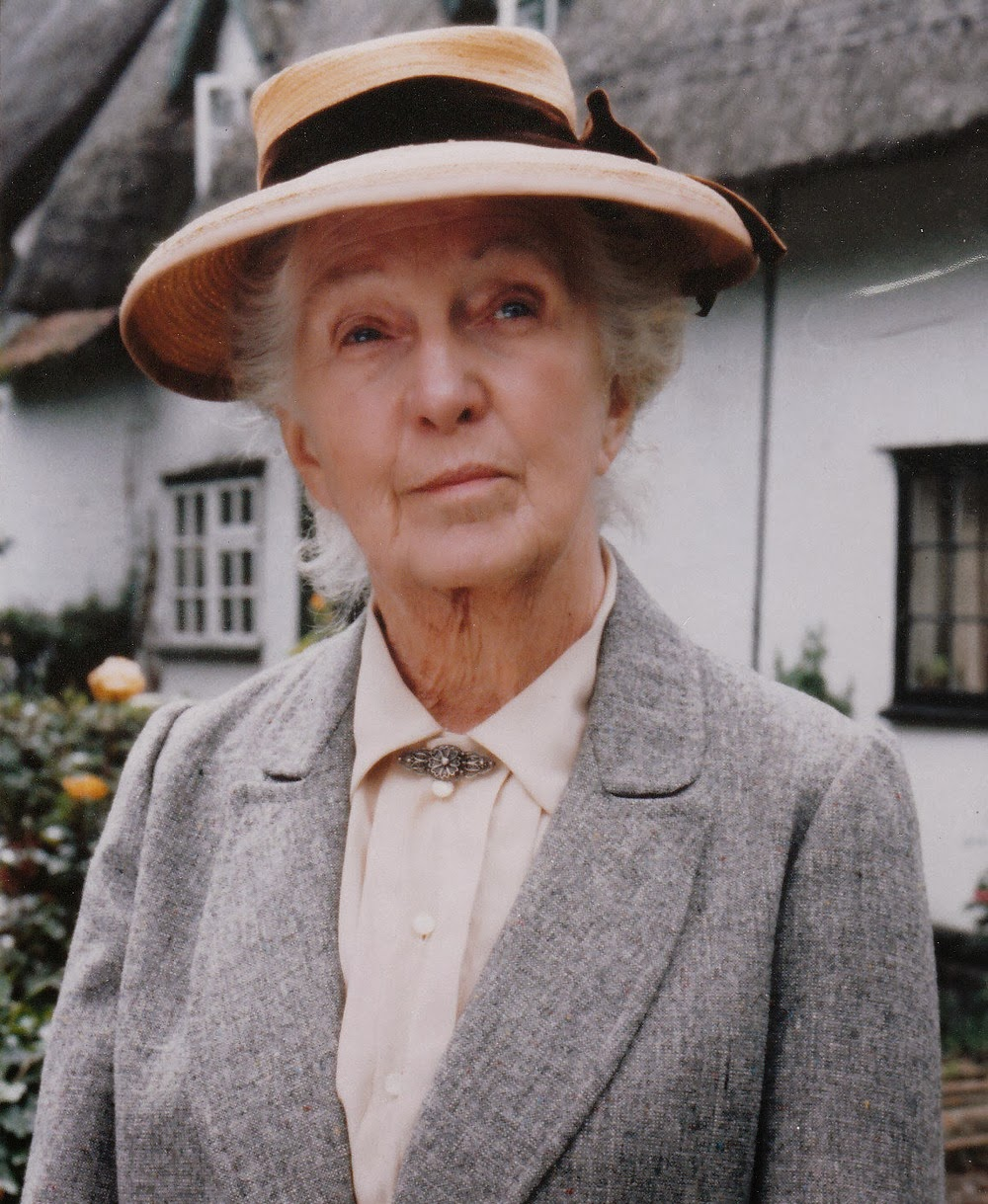
Without doubt, the best Miss Marple was the actress Joan Hickson. The RADA-trained actress (who starred as a nurse and drunk in Carry on Nurse and Carry on Constable), later became one of our most beloved character actresses.
After appearing on stage in the 40s in the play Appointment with Death, Agatha Christie wrote her a note, saying ‘I will call you to play Miss Marple one day, if I can find the time to write another play’.
Joan was already 78 when she eventually played the title role, until she decided to retire from the series several years later. Never a ‘star’, she refused to appear on ogan. But remained an actress until her death at 92, writing ‘Retirement is fatal. If you retire you go POP’.
Joan (her doctor husband died in the late 1960s) lived for over 40 years in a cottage in the Essex village of Wivenhoe. One of her two children wrote The Story of Wivenhoe, which covers the history of the town over several hundred years.
Conclusion
Lasting safety starts with small, steady steps from everyday people. Whether it’s watching out for a neighbour, speaking up at a local meeting, or checking in with family, these actions add up and shape stronger, safer communities for everyone.
Big change feels far off until someone does the simple, daily things that inspire others. Every effort helps, whether you get involved in a local group or just look out for someone who needs it. Your voice and choices can make your street feel more welcoming and secure.
Thank you for caring enough to read and learn about what really works. When each of us takes a step, we move everyone closer to the safe community we all deserve.



